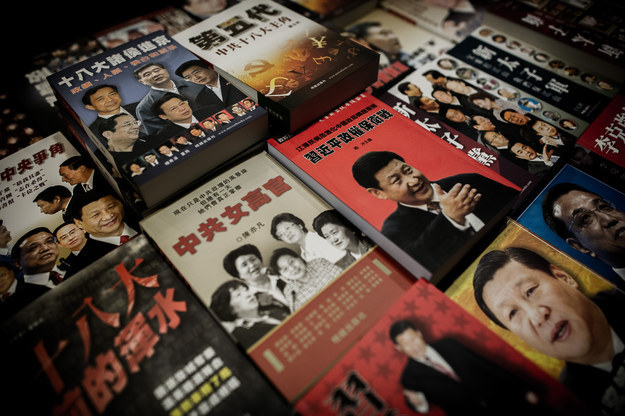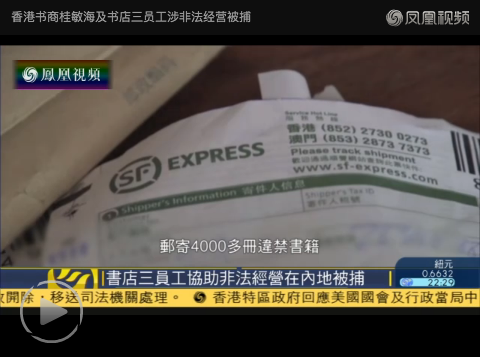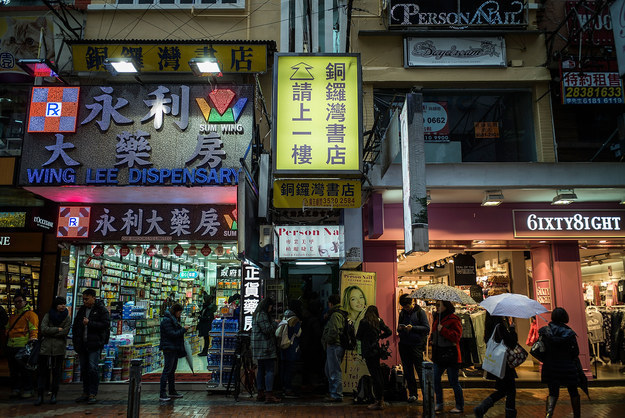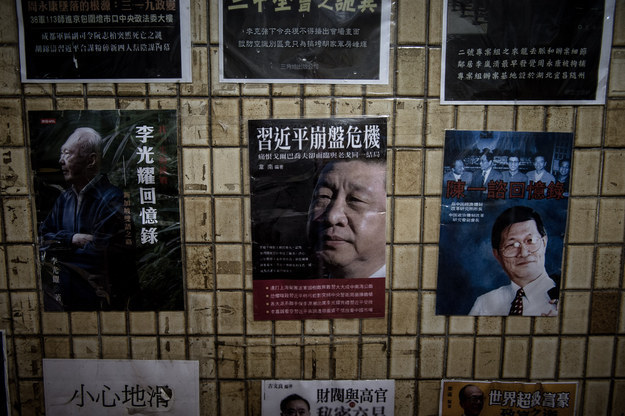We tried to figure out what books Hong Kong booksellers aren’t allowed to sell and it turns out there’s no real list.
Four of the five Hong Kong booksellers that went missing last year have "voluntarily" confessed on Chinese TV that they'd been detained last October in mainland China for running an "illegal business" of "banned books," reported Reuters on Sunday.

Philippe Lopez / Getty Images
The Causeway Bay Bookstore, where all five booksellers worked, primarily sold political gossip books. Phoenix Television says that the shop crossed the line by mailing "banned" books to mainland readers.

Gui Minhai, a citizen of Sweden and the co-owner of the publishing business Mighty Current and the Causeway Bay Bookstore, went missing in Thailand in late 2015, reappeared on Chinese state TV for a primetime confession last month, and is now in detention on the mainland. He was joined by Lui Por, Cheung Chi-ping and Lam Wing-kee on Sunday.
Phoenix Television
Despite the TV report using the word "banned," China hasn't actively banned any specific books — the country has not gone through any legal process to justify the banning of any book or published any kind of list on which books are banned.

The closest the government has come to naming a banned book was some "problematic maps" that were banned back in 2011. The only time that comes to mind was in 2014, when Reuters reported that books of eight prestigious Chinese authors were banned — Xinhua refuted the story quickly and claimed that the report was false.
Even though there's no official list, reports have documented at least one other bookstore's staffers have been told to pull "political sensitive" books off the shelves, while some stores hide the books unless customers ask for them specifically.
Basically, everybody is confused over how to determine what kinds of books are "banned" books, including outspoken and influential Hong Kong writer and TV culture critic Leung Man-tao. "Does China have any regulation or law defining 'banned' book? The answer is no," he wrote in a recent column. Those publications with official authorization are legal books, then those without the government's sign-off qualify as "illegal" publications, he explained.
Lam Yik Fei / Getty Images
According to China's Customs Bureau, those publications "harmful" to China's politics, economics, culture, and morality are prohibited from entering China.

"The Regulation on the Administration of Publication," as the Bureau's document is titled, indicates that ten kinds of publications aren't allowed, including those "endangering the unity of the nation" (although it's unclear what kinds of publication would endanger the unity of the nation), "propagating cults" (without explain kinds of religions or activities are defined as a "cult"), and those "insulting or slandering others."
One of the upcoming books the bookstore is preparing to publish is about reportedly centered around secrets in Xi's personal life, which could potentially violate the law. But the punishment for breaking the customs' regulation in itself isn't defined.
Philippe Lopez / AFP / Getty Images




It's Actually Really Hard To Figure Out What Counts As A "Banned Book" In China